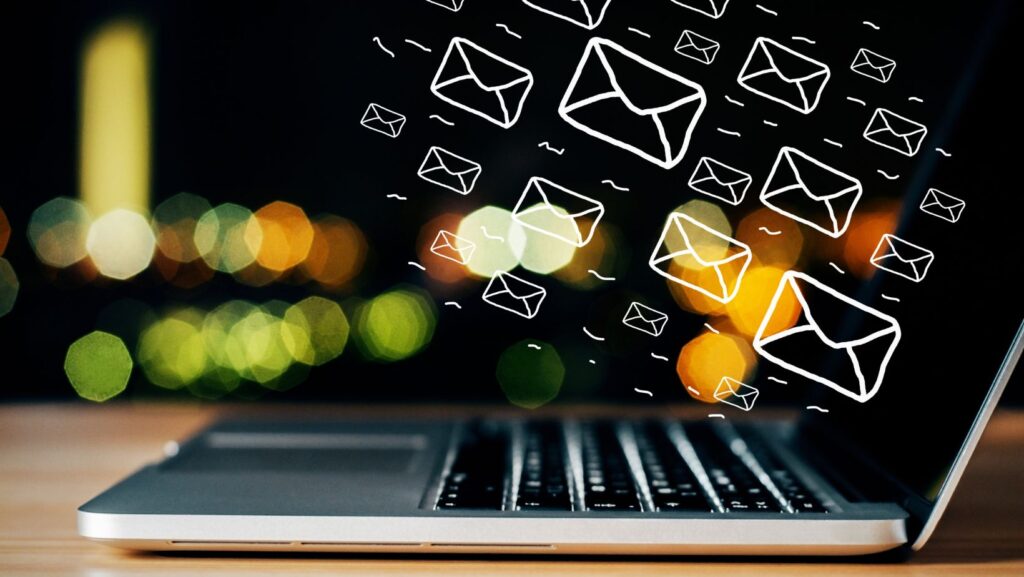Email deliverability is very important for ensuring that your messages reach the intended recipient’s inboxes. Email authentication plays a key role in this process, as it helps prevent spam and phishing by verifying the legitimacy of emails. Important authentication protocols include SPF, DKIM, and DMARC, which help maintain a positive sender reputation and improve inbox placement.
If email authentication protocols are not (correctly) implemented, it can affect your inbox placement negatively. Some tests even show a significant drop in delivery rates. On average, about 16.9% of marketing emails fail to reach the inbox, and 10.5% land in spam folders.
Achieving an excellent deliverability rate of over 95% requires correctly implemented authentication measures. By understanding how email authentication works and how to best leverage it, businesses can improve the effectiveness of their email marketing efforts and get their messages across to the intended audience.
Why Does Email Authentication Matter
To understand why email authentication is important, it’s important to understand the concept of Simple Mail Transfer Protocol (SMTP). SMTP is an internet standard for email transfer, however, it does not include a feature for authenticating inbound and outbound emails. As a result of the lack of a built-in authentication mechanism, hackers can easily exploit this security gap.
To avoid the BEC, phishing, and spoofing attacks that arise from the lack of secure protocols in SMTP, you can make use of email authentication protocols that can help you safeguard your domain from cybercrimes while at the same time protecting your brand reputation and finances.
How to Ensure Effective Email Authentication
SPF, DMARC, DKIM, and other email authentication protocols can play a crucial role in helping you protect your domain from impersonation attacks and unauthorized use.
Make Use of SPF
Your DNS stores SPF (Sender Policy Framework) as a TXT record, which specifies the legitimate sources authorized to send emails on behalf of your domain. As soon as an email is sent from your domain, it includes an IP address linked to your server and email service provider, which is documented in your DNS SPF record. The recipient’s mail server verifies the email against this SPF record for authentication, marking it as either SPF pass or fail based on the verification outcome. You can use an SPF generator to easily create and update your SPF record by specifying authorized IP addresses, third-party services, and setting the appropriate mechanisms.
However, SPF has a 10 DNS lookup limit, exceeding which can lead to a PermError and SPF failure. Thankfully, there are tools that can help you ensure compliance with the 10 DNS lookup limit and help you avoid SPF failures and authentication issues.
Leverage DomainKeys Identified Mail (DKIM)
DKIM is an email authentication protocol that uses a private key to create a cryptographic signature, helping validate emails on the recipient’s server. The recipient retrieves the public key from the sender’s DNS to verify the email’s legitimacy and reliability.
Like SPF, the DKIM public key is stored as a TXT record in the domain owner’s DNS. This allows the receiving server to use the public key to decrypt the DKIM signature, confirming that the email was not altered during transmission.
Ensure DMARC Compliance
While SPF and DKIM are very important and effective in the email authentication process, they alone are not enough for a comprehensive approach. This is because, without DMARC, domain owners still can’t manage and control how receiving servers respond to emails that fail authentication checks.
DMARC (Domain-based Message Authentication, Reporting, and Conformance) is therefore a crucial aspect of the email authentication journey. There is no wonder why it has now become the most popular and widely used email authentication standard among businesses worldwide. DMARC allows domain owners to instruct recipient servers on how to handle emails that fail SPF or DKIM authentication checks. Consequently, using DMARC alongside SPF and DKIM is very important for protecting your domain against unauthorized use, such as spoofing and phishing.
How Does DMARC Affect Your Email Deliverability Rate?
- Adding a DMARC record to your domain’s DNS prompts receiving servers that support DMARC to send feedback on emails they receive from your domain. This indicates to these servers that your domain adheres to secure email protocols and authentication methods, including DMARC, SPF, and DKIM.
- DMARC aggregate reports can offer enhanced visibility and detailed insights into the strengths and weaknesses of your email ‘infrastructure.’ As now you have comprehensive access to your email authentication results, finding and resolving authentication and delivery issues becomes much easier than ever before.
- Implementing and enforcing DMARC policy will enable you to stop unauthorized emails on your domain’s behalf. As a result, you can significantly reduce the likelihood and success of cyber attacks while simultaneously boosting the deliverability rate of legitimate emails.

- For the best possible results, you should leverage BIMI in addition to the above-mentioned protocols to boost your brand’s visual recognition and make it easier for your recipients to understand that the email is associated with your brand. You should also use MTA-STS to protect your email transmission with TLS encryption
Why to Make Use of Hosted Email Authentication Services?
Hosted email authentication services come with many benefits, such as:
Better, All-Encompassing Management
Some hosted email authentication services provide a unified interface to manage and monitor multiple email authentication protocols, including DMARC, SPF, DKIM, and MTA-STS, which makes it much easier to oversee these processes.
More Automation for Higher Efficiency
Hosted services help automate the setup of various authentication protocols, streamlining DNS record generation and reducing the risk of manual errors, ensuring consistency throughout.
Compliance with Local and International Standards
Hosted services provide the necessary tools and guidance to ensure compliance with industry standards, such as Google Bulk Sender Requirements, both immediately and in the long term.
Hosted Email Authentication Services
Hosted services may include DMARC, SPF, DKIM, MTA-STS, TLS-RPT, and BIMI.
Hosted DMARC
You can use the Hosted DMARC service to set up your DMARC solution with no manual errors, while also benefiting from higher effectiveness. These hosted services let you make changes to your DMARC records from an all-encompassing, easy-to-navigate interface, without having to contact your DNS provider.
Transitioning from relaxed to stricter DMARC policies is also made much easier, and the likelihood of any issues in the process is brought to a minimum.
Hosted SPF
You can leverage hosted SPF services for improved SPF monitoring, management, and optimization. Such services simplify error resolution, ensure compliance with DNS lookup limits, and strengthen security by protecting authorized IP addresses and sending sources from cyber threats.
Hosted DKIM
Hosted DKIM services enable domain owners to benefit from a more streamlined, made-easy DKIM management, so you can make changes to your selectors simultaneously while handling multiple selectors. Hosted DKIM services add a DKIM signature to your outgoing emails and verify signatures on incoming emails, which is very important for monitoring and securing your email traffic.
Hosted MTA-STS and TLS-RPT
MTA-STS helps enhance the security of connections between SMTP servers by enforcing TLS encryption for emails sent on behalf of your domain.

This ensures messages are transmitted securely and avoids cleartext and opportunistic encryption. Hosted MTA-STS services allow users to quickly publish DNS CNAME records, manage certificate hosting and generation, and control the policy web server.
Hosted BIMI
BIMI adds an extra layer of verification to your emails by displaying your brand’s logo, which helps signal to recipients that your messages come from a legitimate source. With hosted BIMI services, you simply need to upload your logo image, and the service will seamlessly enable BIMI-based logo display.
Final Thoughts
Email authentication has become an indispensable and integral part of email deliverability. It ensures your emails are protected from hackers, while at the same time securing your brand reputation and finances. Thankfully, there are numerous services and tools available in 2025 that you can leverage for comprehensive email authentication and maximum email deliverability.


